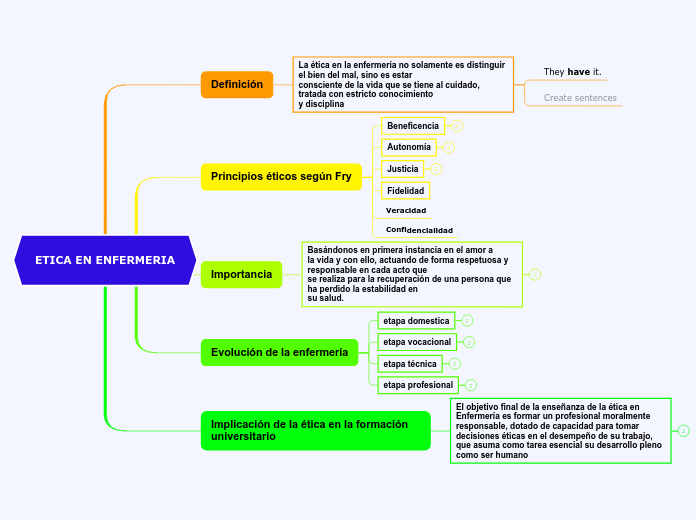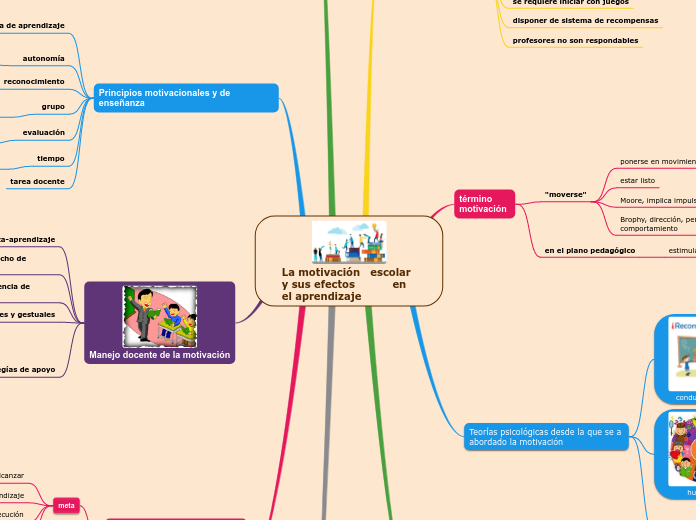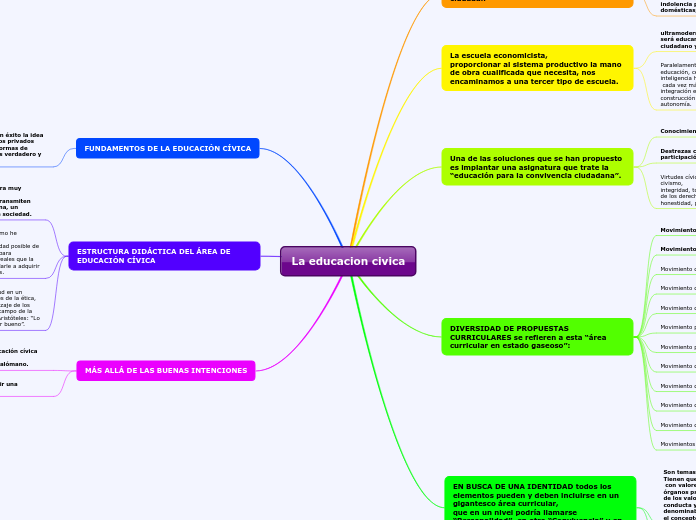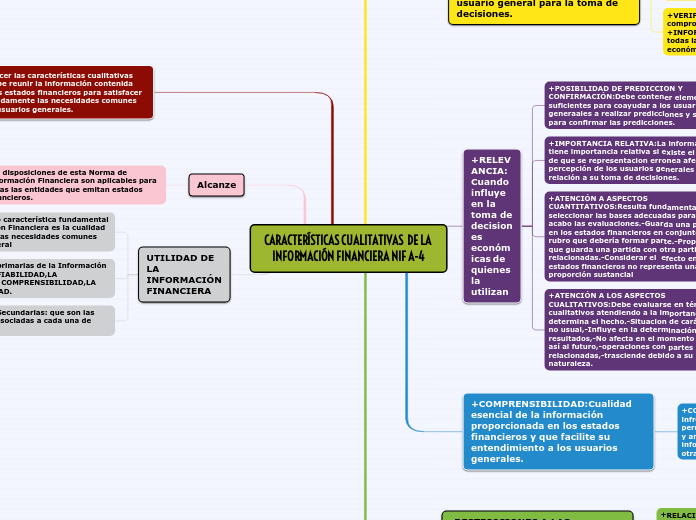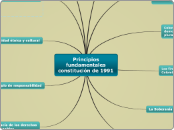ETICA EN ENFERMERIA
The part of speech is a category to which a word is assigned according to its syntactic functions. In English the main parts of speech are noun, pronoun, adjective, determiner, verb, adverb, preposition, conjunction, and interjection.
Implicación de la ética en la formación universitario
An article is a word used to modify a noun, which is a person, place, object, or idea. Technically, an article is an adjective, which is any word that modifies a noun.
El objetivo final de la enseñanza de la ética en Enfermería es formar un profesional moralmente responsable, dotado de capacidad para tomar decisiones éticas en el desempeño de su trabajo, que asuma como tarea esencial su desarrollo pleno
como ser humano
It refers directly to a specific noun or groups of nouns.
The breakfast on my plate.
Evolución de la enfermería
A pronoun is a word that can be used in place of a noun, typically after the noun itself has already been stated.
etapa profesional
A reflexive pronoun ends with ...self or ...selves and refers to another noun or pronoun in the sentence (usually the subject of the sentence). The reflexive pronouns are myself, yourself, herself, himself, itself, ourselves, yourselves, and themselves.
Itself, Himself
etapa técnica
Demonstrative pronouns are used to demonstrate (or indicate). This, that, these, and those are all demonstrative pronouns.
This, These
etapa vocacional
Possessive pronouns are used to show possession. The possessive pronouns are mine, yours, his, hers, ours, and theirs.
His, Your
etapa domestica
The personal pronouns are I, you, he, she, it, we, they. More often than not (but certainly not always), they replace nouns representing people.
He, They
Importancia
An adjective is a word that's used to describe a specific noun and to provide more detail to the listener.
Basándonos en primera instancia en el amor a
la vida y con ello, actuando de forma respetuosa y responsable en cada acto que
se realiza para la recuperación de una persona que ha perdido la estabilidad en
su salud.
Expresses a comparison between two entities or groups of entities in quality or degree.
He is taller than she is.
Principios éticos según Fry
A noun is defined as a person, place, thing or idea. Proper nouns always begin with a capital letter. Common nouns, which are general words, such as 'cars,' are not capitalized.
Confidencialidad
Veracidad
Fidelidad
Compound nouns are words where two nouns have been stuck together to make a new noun. Compound nouns should be written as one word, without a hyphen.
Justicia
A noun which refers to a group of things/people.
Family, Class
Autonomía
Countable nouns are nouns that can be counted, even if the number might be extraordinarily high.
Uncountable nouns are nouns that come in a state or quantity which is impossible to count; liquids are uncountable, as are things which act
like liquids.
Cats, Rain
Beneficencia
Proper nouns are the names of specific people or places. They should always begin with a capital letter.
Mary, Paris
Definición
A verb is an action word or 'doing' word that signifies movement in some way.
La ética en la enfermería no solamente es distinguir el bien del mal, sino es estar
consciente de la vida que se tiene al cuidado, tratada con estricto conocimiento
y disciplina
A verb with its own meaning: a verb that is not an auxiliary verb.
Create sentences
They have it.
